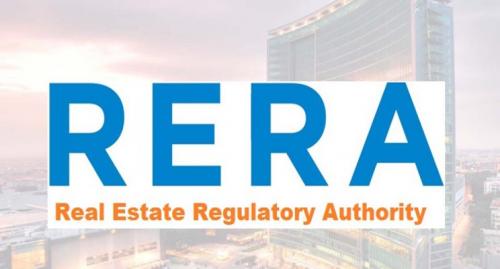Know the essentials of RERA Act

Are you scared to fall in the traps of several housing scams, cheating scandals, and bribe stories? If yes, then you should update yourself with the new act, RERA which will save you from falling into such traps. Real Estate Regulatory Authority (RERA), 2016 got implemented which is aimed towards protecting the rights of the customers when they're considering to invest in real estate.
RERA Act got established for creating transparency between buyers, owners, and promoters of the property. With this Act in effect, it will regulate all the numerous challenges associated with the delay in delivery of projects, uncompleted projects, rising cost of construction, regulatory issues, demonetisation etc. Moreover, RERA will be seen as a win-win scenario for both developers and buyers as former will regain the lost confidence back from customers coming back to the market while the latter will gain from the much required transparency and on-time delivery of projects.
Let's take a quick look at 12 major things one should know about RERA:
1. RERA will set in motion of making essential operative rules and creating an institutional framework for protecting the rights of consumers and augmenting the growth of real estate sector in an environment of trust, confidence, credible transactions with an effective and time-bound implementation of projects.
2. The Ministry of Housing & Urban Poverty Alleviation under the directives of 69 of the total 92 sections of the Act, pushes this act into effect from May 1 , 2017 culminated the eight year efforts in this aspect. A proposal for a law for real estate was first introduced at the National Conference of Housing Ministers of States and Union Territories in January 2009.
3. As per the directives, rules under the Act have to be prepared by the Central and State Governments within a maximum duration of six months i.e. by October 31,2016 under Section 84 of the Act. The Ministry of HUPA would formulate rules for Union Territories without legislatures while the Ministry of Urban Development would conduct it for Delhi.
4. Section 20 of the Act conforms the appropriate Government shall, within a period of one year from the date of enforcing this Act, by notification constructed an authority to be known as the Real Estate Regulatory Authority to exert the powers conferred on it and to enact the functions assigned to it under this Act. These Authorities shall ascertain the complaints of the buyers and developers within 60 days' time. Section 20 of this Act also encourage concerned Governments to appoint any officer, preferably Secretary of the Department dealing with Housing, as the Interim Regulatory Authority until the inception of setting up of Regulatory Authority under the provisions of the Act.
5. The duration of six months for formulation of Rules and one year for establishing the Regulatory Authorities and Appellate Tribunals are the external limit and the States willing to perform quickly could do so and the Ministry of Housing & Urban Poverty Alleviation would intimate the remaining Sections of the Act to permit relief to the buyers under the Act as soon as possible.
6. The remaining 22 Sections to be intimated which is associated with the functions and duties of promoters, rights, and duties of allottees, prior registration of real estate projects with Real Estate Regulatory Authorities, regaining of interest on penalties, execution of orders, offences, penalties and adjudication, apprehension of offences etc.
7. Ongoing Projects : All developers will now have to disclose the actual sanctioned plans and changes made in the project at the further stages and time limit within which they are required to complete their project.
8. Registration of projects: Each state will establish its own governing body who has the responsibility for registering and regulating the projects under this Act. No developer is supposed to advertise/market the project, apartment or building without registering the project under the RERA directives.
9. Availability of Online information : Once you register with regulatory authority, the builder is required to update all the details of the project online on authority's website and keep on updating the same on a frequent basis with respect to the status of the project and other information. This, in further, will assist the buyers to obtain authentic information about the project and make informed decisions at the time of investing the project.
10. Project Quality : The quality of construction remains the top-most concern for many buyers. Any structural defect, notified under RERA act in terms of poor quality becomes the main responsibility of the developer to rectify such defects for a period of 5 years.
11. Delay in delivery compensation : The developer has to compensate in terms of penalty in case of delayed possession or returning the total amount with interest at a pre-determined rate as specified in the agreement of sale, to the home buyers.
12. Booking amount : Normally, developers charge 10 per cent of the total cost property as a booking fee but under RERA, the developer cannot permit for more than 10 per cent of the booking amount as an advance without undertaking an agreement for sale.
Author Bio : Shefali Sinha is a revered financial writer endowed with financial expertise of writing several articles till date. Her recent article on RERA informs the customers about the prerequisites of such act so they can make informed decisions while dealing with the property matters with their builders.
Post Your Ad Here
Comments